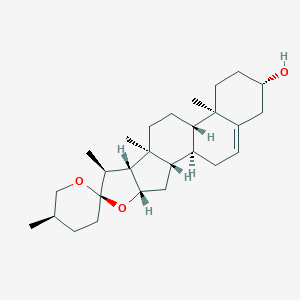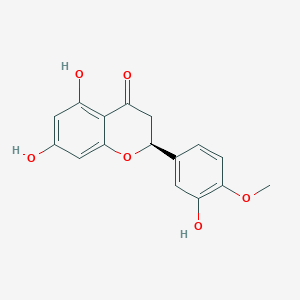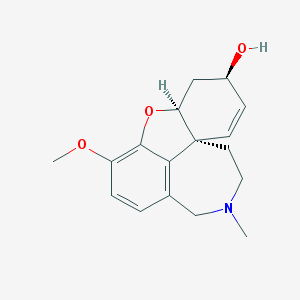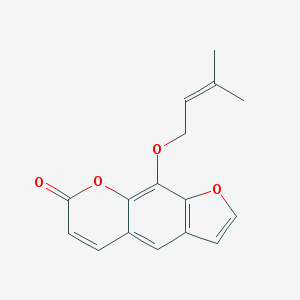Description
Diosgenin is a natural compound that is found in several plants, including wild yam (Dioscorea villosa), fenugreek (Trigonella foenum-graecum), and Chinese yam (Dioscorea opposita). It is a steroidal saponin, which means it has a steroid-like structure with sugar molecules attached to it.
Diosgenin has been studied for its potential health benefits, particularly in the management of menopausal symptoms and osteoporosis. It is often used as a precursor to produce synthetic hormones, such as progesterone and estrogen, which are commonly used in hormone replacement therapy (HRT).
In addition, diosgenin has been found to have anti-inflammatory and antioxidant properties. It has been shown to reduce inflammation by inhibiting the production of pro-inflammatory molecules, such as cytokines, and to protect cells from oxidative damage caused by free radicals. These properties make it a promising compound for the prevention and treatment of chronic diseases, such as cardiovascular disease and cancer.
Here are some of its main benefits and applications:
- Precursor for Steroid Hormones: Diosgenin is an important raw material in the production of steroid hormones. It is used in the synthesis of cortisone, progesterone, and other steroid drugs. These hormones are vital for various medical treatments, including hormonal therapies and anti-inflammatory medications.
- Menopausal Symptom Relief: It is often used in alternative medicine for relieving menopausal symptoms. Diosgenin is believed to have estrogen-like effects, which can help in balancing hormones and alleviating symptoms such as hot flashes and night sweats.
- Anti-inflammatory Properties: Diosgenin has shown anti-inflammatory effects, which can be beneficial in treating conditions like arthritis and other inflammatory diseases.
- Anticancer Potential: Some studies suggest that diosgenin may have anticancer properties, particularly in the inhibition of cancer cell growth. However, more research is needed in this area to fully understand its efficacy and mechanisms.
- Cholesterol Management: There is some evidence to suggest that diosgenin can help in managing cholesterol levels by reducing the absorption of cholesterol in the intestines.
- Diabetes Management: Diosgenin may also play a role in managing diabetes by influencing insulin secretion and reducing blood sugar levels, though more research is required to fully establish these effects.





